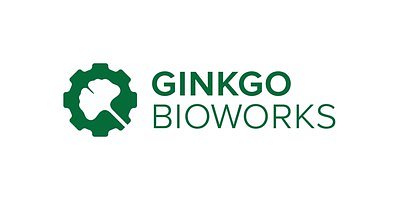
Ginkgo Bioworks at the Crossroads: Balancing Growth and Profitability in Synthetic Biology
Synthetic biology pioneer Ginkgo Bioworks reports Q3 earnings amid rising competition and pressure to demonstrate a path to profitability. Can the company deliver on its ambitious vision?
Ginkgo Bioworks at the Crossroads: Balancing Growth and Profitability in Synthetic Biology
BOSTON, November 7, 2025 – Ginkgo Bioworks (NYSE: DNA) presented its third-quarter 2025 earnings yesterday, revealing continued revenue growth alongside persistent challenges in achieving profitability. The synthetic biology leader, which engineers cells for a variety of applications from biosecurity to sustainable materials, reported revenue of $142 million – a 19% increase year-over-year – but a net loss of $88 million, slightly wider than analyst expectations.
The results paint a picture of a company at a critical juncture. Ginkgo’s ambitious strategy of building a “foundry” network – a global infrastructure for cell programming – is gaining traction, attracting partnerships with major players across industries. However, the substantial capital expenditure required to sustain this growth, coupled with increasing competition, is placing pressure on the company to demonstrate a clear path to sustained profitability.
“Ginkgo is essentially building the tools to design biology,” explained one industry analyst, speaking anonymously. “That requires massive upfront investment. The question is, how quickly can they scale and translate those investments into consistent earnings?”
Expanding Foundry, Narrowing Losses – But at What Cost?
Ginkgo’s third-quarter performance was driven by increased demand for its biosecurity solutions and continued expansion of its foundry network. The company now boasts 25 facilities worldwide, a 28% increase from last year, offering customers a streamlined path to develop and scale their biological products. Foundry utilization rates increased to 75%, indicating stronger demand for its services.
However, this expansion hasn’t come cheap. Capital expenditure remained high, fueled by the construction of new facilities and investment in advanced automation technologies. The company’s net loss of $88 million raised concerns among some analysts, despite being a slight improvement compared to the $95 million loss reported in Q3 2024.
“They’re making progress on the loss side, but the pace is slower than many investors would like to see,” noted another analyst. “The company needs to demonstrate stronger operational leverage and cost control to justify its valuation.”
Competition Heats Up in Synthetic Biology
The synthetic biology landscape is becoming increasingly competitive. While Ginkgo maintains a lead in foundry services, rivals like Amyris and Twist Bioscience are aggressively pursuing niche applications and developing their own core technologies. Amyris recently secured a significant partnership with L’Oréal, focusing on sustainable ingredients, while Twist Bioscience continues to innovate in DNA synthesis, a critical component of synthetic biology workflows.
“Ginkgo’s platform approach is a strength, but it also means they’re competing across a broad range of applications,” one market observer commented. “Competitors who focus on specific verticals may be able to achieve higher margins and faster growth.”
Twist Bioscience, in particular, is emerging as a significant competitor, offering faster turnaround times for DNA synthesis and capturing a growing share of the synthetic biology market. This pressure is forcing Ginkgo to invest heavily in research and development to maintain its technological edge.
Biosecurity as a Key Growth Driver
One area where Ginkgo appears to be gaining significant traction is biosecurity. The company’s platform is being used to develop rapid diagnostics and countermeasures for emerging infectious diseases, attracting interest from government agencies and pharmaceutical companies. This segment is providing a stable revenue stream and contributing to the company’s overall growth.
“The pandemic underscored the importance of rapid response to biological threats,” explained an anonymous source within the biosecurity industry. “Ginkgo’s platform is well-positioned to address this need, and we expect to see continued investment in this area.”
Ginkgo is also leveraging its biosecurity expertise to develop solutions for agricultural biodefense, protecting crops from pests and diseases. This represents a potentially lucrative market with significant growth potential.
The Road Ahead: Balancing Innovation and Profitability
Looking ahead, Ginkgo faces a critical challenge: balancing continued innovation with the need to achieve sustainable profitability. The company needs to demonstrate that its foundry network can generate consistent returns on investment and that its platform can deliver value to customers across a broad range of applications.
Several key factors will determine Ginkgo’s success. These include:
- Cost Control: Managing capital expenditure and operating expenses.
- Customer Concentration: Diversifying its customer base to reduce reliance on a few key accounts.
- Technological Differentiation: Maintaining a technological edge through continued innovation.
- Strategic Partnerships: Leveraging partnerships to expand its reach and access new markets.
“Ginkgo has the potential to revolutionize the way we design and engineer biology,” concluded the anonymous industry analyst. “But they need to prove they can translate that potential into a sustainable and profitable business.”
The company’s management team remains optimistic about the future, highlighting the growing demand for its platform and the long-term potential of synthetic biology. However, investors will be closely watching Ginkgo’s performance in the coming quarters to see if the company can deliver on its ambitious vision.
